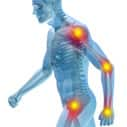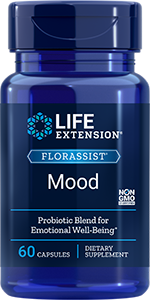|
|
|
Tuesday, February 23, 2016
An article published ahead of print on January 27, 2016 in the American Journal of Clinical Nutrition reports the outcome of a double-blind, placebo-controlled trial which found a positive effect for zinc supplementation on indicators of immune function in older nursing home residents.
Boston researchers randomized 53 nursing home residents aged 65 and older who had low serum zinc levels to receive 30 milligrams (mg) zinc or a placebo that contained 5 mg zinc for three months. Blood samples collected before and after treatment were analyzed for serum zinc levels and immune response markers.
At the end of the study, participants who received 30 mg zinc exhibited a significant increase in the number of peripheral T cells. They also significantly increased their mean serum zinc levels by 16%, when compared to the placebo group.
"Zinc deficiency is associated with changes in T cell–mediated function similar to those observed with aging," note Junaidah B. Barnett of Tufts University and associates. "Zinc supplementation may therefore play an important role in increasing serum zinc concentrations, improving immunity, and preventing infectious diseases such as pneumonia in the elderly."
"The key finding from this study is that it is feasible to increase serum zinc concentrations in nursing home residents with a low serum zinc concentration through supplementation with zinc," they emphasize. Dr Barnett and colleagues note that the 5 milligrams of zinc provided by the placebo was ineffective at maintaining or increasing zinc concentrations. |
|
|
| |
 |
|
What's Hot |
|
|
|
Zinc deficiency linked to chronic inflammation |
|
|
|
 |
|
| |
A report published in the May 2015 issue of Molecular Nutrition and Food Research reveals how being deficient in the mineral zinc results in immune dysfunction and chronic inflammation, which is involved in cardiovascular disease and other conditions.
Emily Ho of Oregon State University (OSU) and her colleagues examined the effects of zinc deficiency in cell cultures and aged mice. The team observed an increase in the responses of the cytokines interleukin 1beta and interleukin 6 following the administration of an inflammation-provoking substance to human white blood cells known as monocytes. In aged mice, zinc deficiency was also associated with an increase in interleukin 6 gene expression.
"Zinc deficiency induced inflammatory response in part by eliciting aberrant immune cell activation and altered promoter methylation," the authors concluded. "Our results suggested potential interactions between zinc status, epigenetics, and immune function, and how their dysregulation could contribute to chronic inflammation."
"When you take away zinc, the cells that control inflammation appear to activate and respond differently; this causes the cells to promote more inflammation," explained Dr Ho, who is a professor and director of the Moore Family Center for Whole Grain Foods, Nutrition and Preventive Health in the OSU College of Public Health and Human Sciences.
Dr Ho noted that 12% of U.S. residents and nearly 40% of those 65 and older fail to obtain adequate zinc. In addition to consuming less of it, older men and women are less efficient at absorbing the mineral. "It's a double-whammy for older individuals," she observed.
"We think zinc deficiency is probably a bigger problem than most people realize," Dr Ho noted. "Preventing that deficiency is important."
|
|
|
| |
 |
|
Life Extension Clinical Research Update
Effects of Nutritional Supplements on Cognition, Mood, and Fatigue (CL078)
South Florida Location |
|
|
|
Life Extension is sponsoring a study to assess the effects of nutritional supplements in support of cognition, mood and fatigue in individuals with memory
complaints, an altered mood and/or feelings of fatigue within the past six months.
To qualify:
- Between 40-70 years of age
- Normal weight to overweight (BMI 18.5—29.9)
- In good health
- Experiencing memory complaints, an altered mood, and/or feelings of fatigue (within the past six months)
- Currently drinking no more than one cup of coffee a day
- Able to comply with all study procedures and visits
Qualified participants will receive at no cost:
- Study product
- Blood tests
- Blood pressure evaluations
- Up to $250 for time and travel expenses
- A $50 referral bonus is also available.*
Please call 1-866-517-4536 for further information and to see if you qualify.
https://www.lifeextension.com/clinicalresearch/ClinicalTrials.htm
*If you refer someone who enrolls in a study and completes their final visit with closeout procedures, you will be compensated the amount noted for the study. |
|
|
 |
|
Events
Prostate Cancer Research Institute
March 26, 2016
2016 The Mid-Year Update
Los Angeles Airport Marriott
Los Angeles, California |
|
| |
| — |

The Mid-Year Update — March 26, 2016, at the Los Angeles Airport Marriott, features presentations from leading doctors and Q+A sessions moderated by Mark Moyad, MD.
Sexual side effects are always a consideration when discussing prostate cancer treatments and, in addition, there has been a recent buzz concerning the use of testosterone for men with prostate cancer. We are bringing in Mohit Khera, MD, a leading expert from Baylor College of Medicine, to provide clarity on the controversy surrounding the use of testosterone and managing sexual side effects. Similarly, active surveillance as a treatment is becoming more widespread and we are bringing in Laurence Klotz, MD, the father of active surveillance. Dr. Klotz is a widely published uro-oncologist with over 300 publications and 4 books. His main research interest has been active surveillance in prostate cancer.
Prostate cancer technology is advancing. In response, our Executive Director, Mark Scholz, MD, will be presenting "Five Important Prostate Cancer Breakthroughs in 2015."
More information and registration at: www.pcri.org/2016-mid-year-update
| |
|
 |
|
Health Concern
Immune system strengthening |
|
|
Age, stress, and poor nutrition can sap our immune system of its effectiveness. Influenza provides one example; during young adulthood, when the body can mount a robust immune response to this common virus, influenza is rarely fatal. Among the elderly, however, the virus is associated with significant rates of death and hospitalization (Nichol 2005).
Metallic micronutrients such as copper, zinc (Prasad 2000), and selenium influence the activity of antioxidant enzymes and can reduce oxidative stress. Among children, deficiencies of zinc, copper, and selenium have been linked to immune deficiency and infection (Cunningham-Rundles 2005).
Selenium is involved in several key metabolic pathways (Rotruck 1973; McKenzie 1998, 2000). Glutathione peroxidase, the enzyme that recycles glutathione, depends on the presence of selenium for its antioxidant activity (Arthur 2003). Although plant food is a major dietary source of selenium (e.g., garlic is rich in selenium), the highest concentration of dietary selenium occurs in meat.
Zinc deficiency is linked to impaired immune function, partly because of decreased T lymphocyte and B lymphocyte function.
|
|
|
| |
 |
|
Latest Products |
|
|
 |
FLORASSIST® Mood, 60 capsules
Item #02000
|
Research suggests specific probiotics positively influence biochemical signaling between the gastrointestinal tract and the nervous system— resulting in positive effects on mood.
FLORASSIST® Mood provides three billion colony-forming units of Lactobacillus helveticus strain R0052 and Bifidobacterium longum strain R0175.
Human clinical research conducted on this dual-probiotic combination demonstrated improvements in mood, reduction in perceived stress, and promotion of relaxation.
|
 |
Neuro-Mag® Magnesium L-Threonate, 90 vegetarian capsules
Item #01603
|
Most commercially available magnesium supplements are not readily absorbed into the nervous system. To overcome this obstacle, you can supplement with an innovative form of magnesium called Neuro-Mag®, shown to specifically target the aging brain and nervous system.
In pre-clinical models, L-threonate contained in Neuro-Mag® boosted magnesium levels in spinal fluid by an impressive 15% compared to no increase with conventional magnesium. Even more compelling, animal models revealed improvements of 18% for short-term memory and 100% for long-term memory using the Neuro-Mag® form of magnesium. |
|
|
|
 |
|
Related Life Extension Magazine® Articles |
|
|
|
|
|
|








